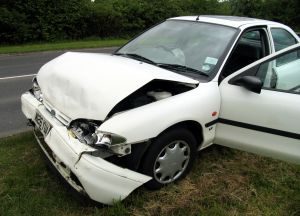When an employee acting in the course and scope of employment is negligent and causes injury to someone else, the employer can be held vicariously liable for those injuries – even if there is no evidence the employer did anything wrong or breached any duty of care. 
However, Florida employers may also be held directly liable if there is evidence they breached some duty of care. Usually we see this manifested in legal theories such as negligent hiring or negligent supervision.
Recently, the Indiana Supreme Court affirmed a long-standing rule in that state that plaintiffs have to pick one or the other: Vicarious liability or direct liability.
According to court records, defendant driver was delivering pizzas while employed at a franchise for a large chain pizza company. While she was driving, her vehicle crashed into the back of a scooter operated by decedent, who was thrown onto the road and subsequently run over by another car. He died as a result of his crash-related injuries.
Decedent’s estate filed a wrongful death lawsuit against both drivers, as well as against the pizza franchise firm. The estate alleged decedent’s death was directly and proximately caused by the pizza chain’s negligent hiring, training and supervision of defendant driver. Estate also alleged the company was liable for it’s employee’s negligence under the doctrine of respondeat superior.
Defendant pizza chain moved for a partial summary judgment. It alleged that because it had already conceded its employee was acting in the course and scope of employment, it could only be held responsible for decedent’s death through the vicarious liability established by respondeat superior. The trial court agreed with defendant pizza chain and granted partial summary judgment, effectively dismissing direct liability claims of negligent supervision, training and hiring.
The estate appealed, and the appellate court reversed and remanded. The appellate court ruled the estate could seek both theories of recovery because the claims were separate torts, with one not derivative of the employee’s negligence. The appellate panel ruled this was also more consistent with the state’s comparative fault law, which allows for a proportionate reduction of damages based on a plaintiff’s own negligence.
Defendant pizza company then asked for a review by the state supreme court, which was granted. In turn, the state supreme court vacated the appellate court’s ruling.
The case law upon which the supreme court based its reasoning was decided in 1974. In Tindall v. Enderle, an employee of a tavern shot and killed a patron. The estate of the patron filed a negligence action against the employee, as well as against the establishment. Plaintiff alleged the business was directly liable for negligent hiring and retention of the employee. Before trial, the bar stipulated that at the time of the fatal shooting, the worker was an employee and he was acting within the course and scope of employment. The bar also filed a motion to exclude all evidence of the worker’s prior assaults on patrons – which was the basis of the estate’s claim that the tavern was negligent in hiring and keeping this employee. Trial court granted the defense motion. On appeal, the appellate court ruled the trial court’s decision was proper, even though it eliminated the negligent hiring and retention claim, because it was not separate and distinct from the respondeat superior claim.
If you are injured in a Fort Lauderdale car accident and the driver at the time was on-the-job or driving a company vehicle, complex legal questions like this may arise. Your best course of action is to discuss your legal options with an experienced car accident attorney.
Call Fort Lauderdale Injury Attorney Richard Ansara at (954) 761-4011. Serving Broward, Miami-Dade and Palm Beach counties.
Additional Resources:
Sedam v. 2JR Pizza Enterprises, LLC, Oct. 31, 2017, Indiana Supreme Court
More Blog Entries:
Blood-Alcohol of Pedestrian in Accident Allowable as Evidence in Wrongful Death Lawsuit, Oct. 11, 2017, Fort Lauderdale Car Accident Attorney Blog
 Broward Injury Lawyer Blog
Broward Injury Lawyer Blog



